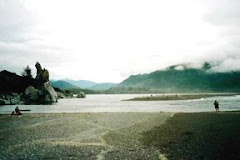Judging from press reports, most “off project” irrigators do not like the proposed Klamath Water Deal (aka Klamath River Basin Restoration Agreement). This is not surprising since the proposed deal clearly favors “on project” irrigators. If the core of the Water Deal is enshrined in federal legislation, that small group of big operators [1] will be the only interest in the Basin which is guaranteed a fixed allocation of water every year. In addition, they could gain power subsidies and other benefits – including new revenue from wildlife refuges diverted to their irrigation districts. In the same Water Deal “off project” irrigators are given none of these benefits. Instead they are made the target for 30,000 acre feet of irrigation water demand reduction. That means something like 10,000 acres of currently irrigated land would need to be converted to dry land farming or to a non-ag, non-water-consuming use.
So it is not surprise that most “off project” irrigators have been critical of the Water Deal. But they are not unified. Most of these farmers operate their own irrigation systems; they have never before had an incentive to get organized. In contrast “on project” irrigators had to organize to deal with the Bureau of Reclamation which runs the Klamath Project and to influence federal government policy and legislation. This has given the “on project” irrigators distinct political advantages as compared to “off project” irrigators.
Now there are signs that “off project” folks are getting organized. In a guest comment published in the Capital Press regional agriculture weekly on January 2nd, Karl Sconce announced formation of “an organization that can represent off project irrigators” in ongoing negotiations over the future of the Klamath River, Klamath Basin agriculture, Klamath dams and several related issues. The Upper Klamath Water Users Association, organized as a non-profit organization for the mutual benefit of its members, aims to “create a positive future for off-project irrigators” by pursuing:
¨ Water assurances negotiated with Klamath Tribes and Klamath Project.
¨ Participate in a power agreement with Klamath Water and Power Agency.
¨ Regulatory protection from endangered species.
It is interesting that these are the same objectives which the organization representing “on project” irrigators – the Klamath Water Users Association (KWUA) – announced when it entered Klamath negotiations. In press statements, KWUA officials have since confirmed that these goals are achieved in the proposed Water Deal. The similarity in the names of the two organizations appears to be intentional as well.
It remains to be seen how many “off project” irrigators will choose to organize under the banner and leadership of the new Upper Klamath Water Users Association and how successful they will be. But one thing is certain - there is a new player in Klamath Country.
[1] Because of limits on how much water a single owner can receive from federal irrigation projects, there were originally a large number of small, family farms within the Klamath Project. Over time, however, small acreage farming has become uneconomical in the


No comments:
Post a Comment